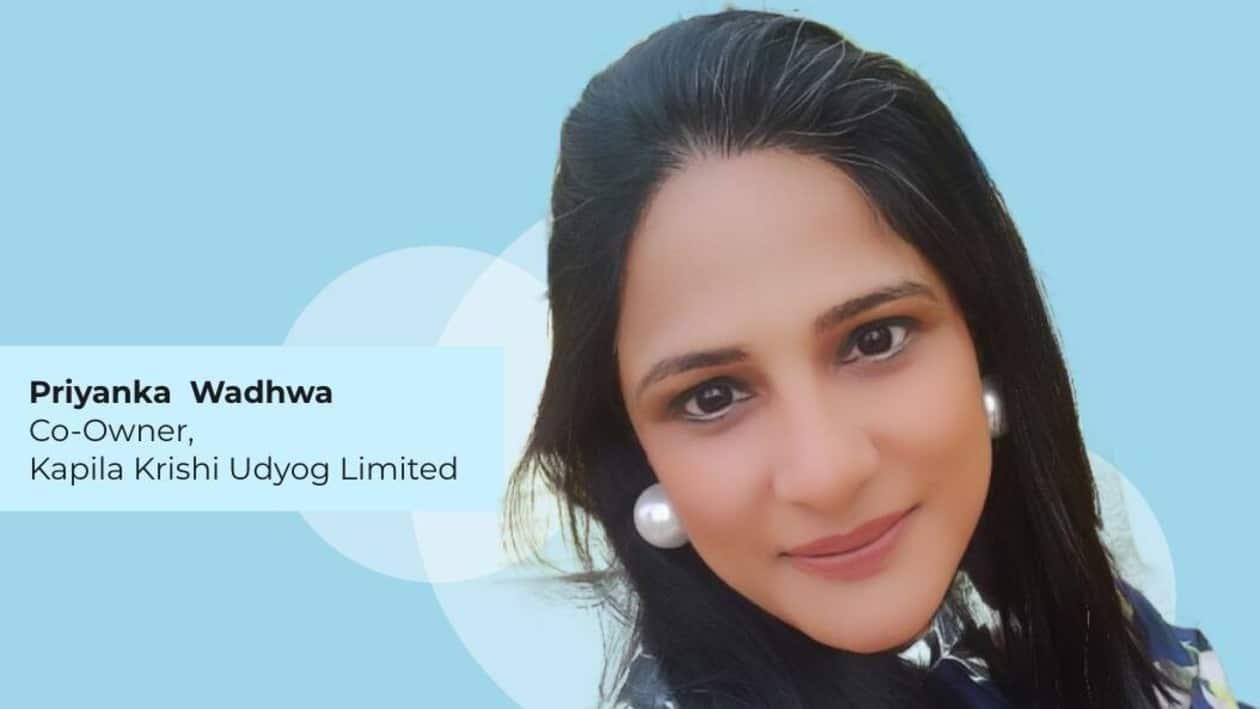New-age investors may lack the expertise and knowledge necessary to manage their finances and make informed investment choices, says Priyanka Wadhwa, Co-Owner, Kapila Krishi Udyog Limited.
In an interview with MintGenie, Wadhwa said that financial literacy should be a mandatory part of the school curriculum.
Edited Excerpts:
Q. Financial literacy is missing in our school curriculum, thus, depriving people of the necessary financial knowledge. What is your view on the same?
So, you finally got your first paycheck and you're feeling like a million bucks! But then you realize that nobody taught you how to manage your money back in school. Right? It's like they prepared you for a job, but forgot to teach you how to be an adult.
In my opinion, financial literacy should be a mandatory part of the school curriculum. Schools ought to offer classes that instruct pupils on money management, creating budgets, investing, handling debts, and financial planning. Educating young individuals about finances can equip them with the knowledge to make informed decisions that will pave the way for a financially secure future.
Q. What are the critical aspects of financial literacy that we cannot afford to ignore for a secure financial future?
Want to know the secret recipe for a financially secure future? Don't forget the basics of financial literacy like budgeting, saving, investing, debt management, and financial planning. It is also important to grasp the concept of inflation which reduces the value of money over time.
For instance, you are 30 years old, plan to retire at 60, have a life expectancy of 80, and the inflation is six per cent. Assuming that you do not have any current investments and that your assets will generate a return of 12 per cent pre-retirement and six per cent post-retirement, you need a corpus of ₹6.8 crores on retirement!
Q. Do you think new-age investors are more well-informed about various investment options than their predecessors? Also, what do they lack when it comes to planning their finances?
As a new-age investor, you have the advantage of accessing an abundance of information about financial products and investment opportunities at your fingertips through the Internet and social media, which was unavailable to the previous generations.
However, new-age investors may lack the expertise and knowledge necessary to manage their finances and make informed investment choices. Additionally, they may be more prone to impulsive or emotional decision-making, as they may be influenced by social media or the opinions of their peers.
Q. How do you advise people to plan their personal finance goals?
My recommendation is for individuals to begin by establishing precise and well-defined financial goals. This involves considering both short-term and long-term objectives, such as debt repayment, retirement savings, homeownership, and so on.
Once you have identified the goals, it's important to develop a budget that can help track expenses and identify potential areas where you can save money. Additionally, creating an emergency fund, investing in a diversified portfolio, and regularly reviewing one's financial plan is important.
Q. Wealth creation is an important goal. What steps should one take to achieve the same?
To accumulate wealth, having a diversified investment portfolio according to your risk appetite is crucial. In the initial years, it is important to have a large chunk of your portfolio in equities, and a smaller portion in debt, since you have time on your side. 10 per cent of your portfolio should be in gold to guard against market volatility. A part of your portfolio in real estate can also be great for wealth creation, but remember that it is an illiquid asset and cannot be converted into cash easily.
Also when it comes to wealth creation, the power of compounding is key and time can be your ally. For example, you need to invest ₹25,000 per month to create a corpus of ₹20 lakhs in five years, while you need to invest only ₹15,000 per month to create the same corpus over seven years. So, starting early helps.
Q. Given the inherent market volatility, many investors are unable to earn desired returns as planned. What would be your advice to them?
If you are unable to earn desired returns due to the inherent market volatility, you should avoid making rash decisions. A well-diversified investment portfolio is critical to withstand market fluctuations. It's best to refrain from trying to time the market. Instead, spend time in the market with a focus on a long-term investment strategy.
Q. One of the reasons for financial ignorance is accumulating too much debt. What do you tell debt-ridden people relying on loans to make more money or for immediate gratification?
If you have too much debt it is important to create a plan to pay off your debt. Focus on reducing your expenses and increasing your income to pay off your debts quickly. High-interest debt like credit card debt and personal loans need to be paid off first. More importantly, avoid new debt as much as possible- you should avoid buying the latest iPhone on equated monthly instalments (EMIs) or taking a loan to fund your trip to Dubai!
